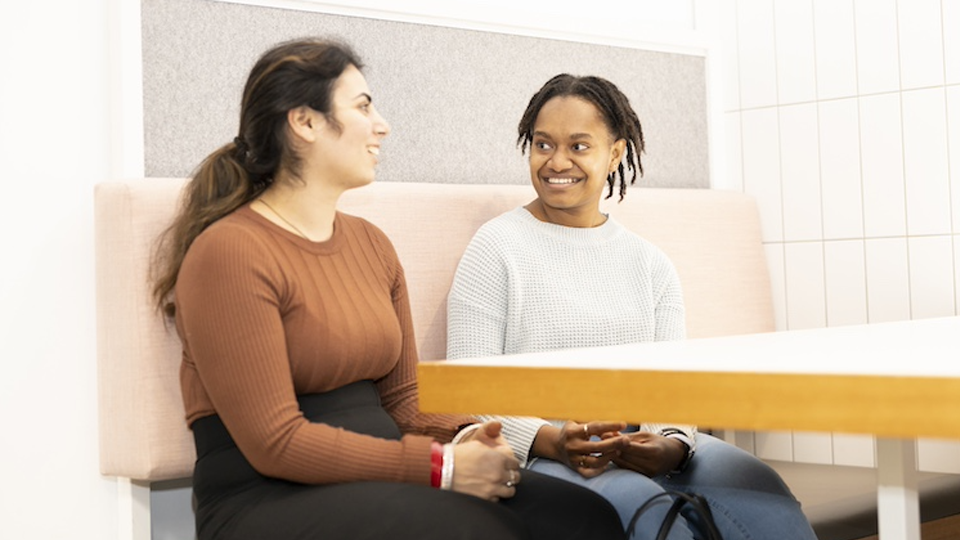Dealing with disappointment: some strategies to make lemonade out of lemons
It’s likely that from time to time we might encounter disappointment – it’s one of those things that comes with the highs and lows, or swings and roundabouts, of life.
Perhaps your exam results or ATAR weren’t what you had hoped for. Maybe you were certain you’d get that job that just slipped by. Or, someone close to you let you down.
You might feel a mixture of things after receiving your Year 12 results, and it’s okay if one of them is disappointment.
It’s been a huge year, and getting to the end of it is an achievement in itself. If your ATAR score isn’t what you were hoping for, don’t forget you’re more than a number – and there are plenty of other ways to reach your goals.
With the help of psychologist Minh Nguyen, a Victoria University (VU) alum, here are five steps to help you bounce back gently – or even turn your disappointments into something positive, that could lead you towards growth.

5 ways to bounce back from a setback
1. Be kind to yourself
It’s important to address your disappointments, but first you need to take care of you – in mind and body. Don’t try and figure out your next move or a plan B immediately: give yourself time to process.
Psychologist Minh Nguyen's advice:
Look after yourself by exercising, eating and sleeping well. Talk to someone you trust about your feelings.
Don’t be afraid to reach out to family and friends – or even others. If it’s study advice you’re in need of, our friendly and informative Student Advisor team are here to help. You can chat to them 1:1 at our Change of Preference event in December, or find out about other ways you can contact us.
2. Surround yourself with good people
Choose positive vibes and positive people who validate your feelings and recognise your contributions and hard work.
You may benefit from surrounding yourself with people who can help affirm your efforts. Spend time with people who encourage a positive mindset, so that you focus on building on your strengths.
Your summer break is your chance to let off some steam after a big year, so make sure you stay connected with friends and family.
3. Get your feel-good flowing
See if you can get moving and motivated. You’d be amazed at how inspiring a little exercise, a good belly laugh, or spending time on an activity you enjoy can be.
Create a positive spiral of activities that release the ‘happy’ endorphins in your brain and distributed throughout your nervous system, by exercising, spending time with loved ones, engaging in an activity that you enjoy, and accomplishing an achievable task that you feel proud of.
It’s science – those endorphins are what you need! Don’t forget you can feel accomplishment and pride in smaller things too, not just your large-scale goals.
4. Take this as a learning experience
Think about how we learn to walk when we’re little – one of the best ways to learn is through failing, getting up and trying again. Once you figure out what you can learn from your disappointment, you can begin to set new goals and start down a new path.
Reflect on what your strengths are and what you could improve. Develop Specific Measurable Achievable Realistic and Time-bound (SMART) goals of what you can improve. Review in relevant timing.
There’s been plenty of well-known people who have failed, failed again, and then finally succeeded – read about 29 of them.
5. Get back in the game
Now it’s time to figure out your next move. Trying a different tact is a great way to start – and doing learning differently is what we’re all about at VU.
For example, if your ATAR score wasn’t what you had hoped for, why not look into a study pathway? Chat to a career advisor or read about your options and discover the many ways to achieve your goals – that you may not have known existed! Don’t rush it: you’ve got plenty of time to succeed, and to build your future the way you see it.

What else can you do?
Discover why no one sees you like VU. With our game-changing VU Block Model®, we set you up for success in both study and life. Explore flexible pathways, a wide range of courses across higher education and TAFE, and a student experience designed around you.
Need support at uni?
- You can talk to one of our experts about your study options at VUHQ, your first point of contact for assistance, advice and support.
- You can also access support services, including counselling, psychology and mentoring.
About Minh Nguyen
A psychologist who has worked extensively with young people and children in schools, and supporting new parents, Minh Nguyen is a graduate of the Master of Applied Psychology (Community Psychology) at Victoria University (no longer offered).